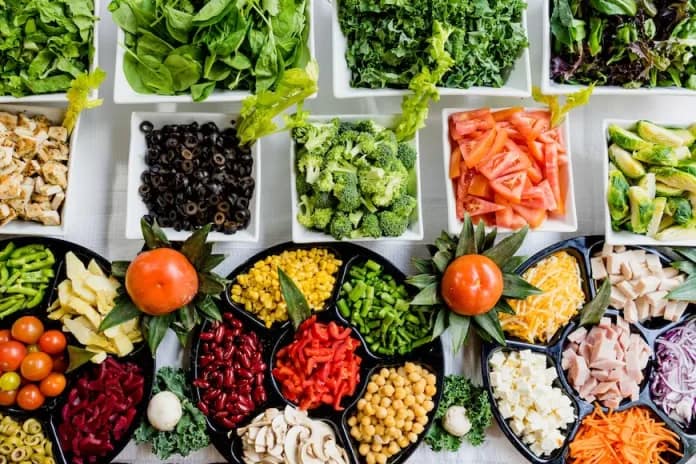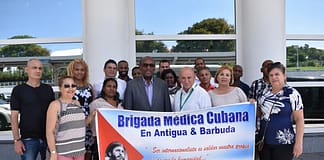
SOURCE: CNW – Recognizing the importance of having a strong policy framework to modernize their Agricultural Health and Food Safety (AHFS) systems, Antigua and Barbuda successfully validated a National AHFS Policy and Action Plan under the European Union-funded 11th European Development Fund Sanitary and Phytosanitary Measures Project (11th EDF SPS Measures Project).
The policy is expected to contribute to the attainment of the appropriate level of human, plant, and animal health protection, as well as access to safe and nutritious food and optimum trade facilitation of agricultural and food products.
It will also bolster the Government of Antigua and Barbuda’s strategies towards further developing the domestic agricultural sector and exporting food products.

On May 23, 2023, the National AHFS Policy Validation Workshop which took place in St John’s in Antigua and Barbuda, commenced with an opening ceremony during which key partners provided remarks.
The representative from the European Union, Mariana Arias, ProgramManager, European Union Delegation to Barbados, the Eastern Caribbean States, the OECS, and CARICOM/CARIFORUM, stated at the Workshop’s Opening Session that a part of the European Union’s mandate is to increase trade with Antigua and Barbuda and with the entire Caribbean.
Arias indicated that the EU wants more business relationships, more economic and people-to-people exchanges, and, equally important, healthier people in the Caribbean and a healthier environment for animals and plants, which is why the EU is funding the 11th EDF SPS Measures Project.
She further stated that the environment and climate change are global concerns for everyone.
This will also help in achieving the regional objective of reducing food imports by 25% by 2025.

The representative from IICA, Dr. Janet Lawrence, Agricultural Health, Food Safety & Quality Specialist – Caribbean/11th EDF SPS Measures Project Manager, stated that a “crucial component of the project is strengthening the SPS regulatory environment. Through this component, what we have done is supported countries in the Caribbean to update their legislation in animal health, plant health and food safety.
We have also trained public sector professionals to coordinate SPS services effectively and efficiently. In collaboration with the Caribbean Agricultural Health and Food Safety Agency, CAHFSA, we have developed a regional agricultural health and food safety policy evaluation plan and a national policy framework.”
She stated that the policy should become an actionable document to see the benefits of implementation.
Weighing in, Dr. Gavin Peters, Chief Executive Officer, CAHFSA, stated, “This is a major accomplishment for Antigua and Barbuda as they are the first to have their national AHFS policy developed as part of the 11th EDF SPS Measures Project.
This is an important milestone and step in building an efficient and effective SPS regime in the Caribbean region. We will take the lessons learned from this development as we move the process forward so that every country in the region will have their national agricultural health and food safety policy developed and implemented.”
We all have a role to play in national food security according to Gregory Bailey, Director of Agriculture, Ministry of Foreign Affairs, Agriculture, Trade & Barbuda Affairs, “As a matter of fact, many times in small societies like ours we find ourselves playing multiple roles along the value chain.
For example, some farmers and fishers may be processors themselves, who may also be involved in the supply of inputs, in scenarios such as this it becomes paramount that we understand our relative position within the related value chains and the potential effects our actions and inactions may have on national food safety whether it be at the national level, community level or the household level.”
The Hon. E.P. Chet Greene, Minister, Ministry of Foreign Affairs, Agriculture, Trade and Barbuda Affairs, through his video message, indicated that contaminated food is responsible for approximately 600 million cases of food-borne illnesses and about 420,000 deaths worldwide each year.
“Food can be contaminated due to a variety of factors, including bacteria, viruses, parasites, chemical contaminants, and toxins produced by micro-organisms.
In addition to the impact on human health, the recall of contaminated food can have significant economic consequences for crop and livestock farmers, as well as those who market their produce,” he added.
Minister Greene stated that it is essential to have strong policies and regulations in place to prevent and respond to food-borne illnesses in order to protect the health and well-being of consumers and the livelihoods of those involved in the food production and marketing chains.
“A policy on Agricultural Health and Food Safety can help to protect the health of consumers, livestock and crops.”
CLICK HERE TO JOIN OUR WHATSAPP GROUP
CLICK HERE TO JOIN OUR WHATSAPP GROUP
CLICK HERE TO JOIN OUR WHATSAPP GROUP
CLICK HERE TO JOIN OUR WHATSAPP GROUP
CLICK HERE TO JOIN OUR WHATSAPP GROUP
CLICK HERE TO JOIN OUR WHATSAPP GROUP
Advertise with the mоѕt vіѕіtеd nеwѕ ѕіtе іn Antigua!
We offer fully customizable and flexible digital marketing packages.
Contact us at [email protected]
















Yes but tell dem kipparf de kentucky 🐔
Comments are closed.